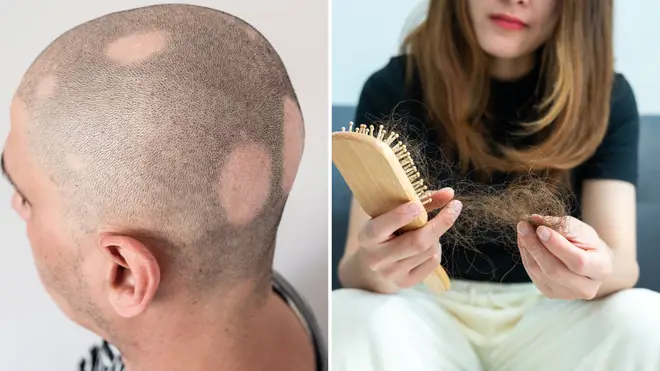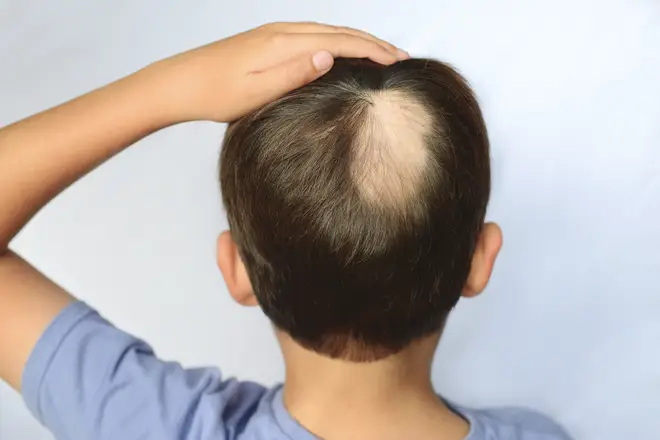
Paul Brand 10am - 12pm
22 February 2024, 14:53 | Updated: 22 February 2024, 15:10

A revolutionary pill developed by Pfizer could now provide relief to the 14,000 in England people suffering from alopecia after being recommended for use within the NHS for the first time.
The drug, called Ritlecitinib or Litfulo, which needs to be taken once a day, was approved for NHS use by the National Institute for Health and Care Excellence (Nice), which had previously rejected the drug in September 2023 citing issues with the cost.
But the decision was reversed after Pfizer slashed the cost of the drug for the NHS with a bigger discount and provided the watchdog with more information on the medication.
The pills usually cost an eyewatering £1,000 per 30 tablets without a discount.
Alopecia areata is an autoimmune disease that causes hair loss through an autoimmune response where healthy hair follicles are attacked by the body's defence system.
The disease affects roughly 400,000 people in the UK, and causes hair to fall out from the scalp, face, eyelashes, or, in more severe cases, across the entire body.
In December last year, documentary maker Louis Theroux, 53, shaved off his eyebrows after suffering facial hair loss from alopecia.
The medication works by reducing the enzymes that cause inflammation and hair loss after the body’s autoimmune response erroneously attacks healthy hair follicles, mistaking them as a foreign body.


Helen Knight, director of medicines evaluation at NICE, said: "Our committee heard how severe alopecia areata can have a significant impact on people's health and quality of life.
"I'm delighted that we are now able to recommend this innovative treatment."
Sue Schilling, chief executive of Alopecia UK, said: "For far too long, patients with alopecia areata have gone without a licensed treatment option available via NHS pathways.
"If new treatments are only available privately, it becomes a case of the 'haves and the have nots', this latest NICE recommendation will go some way to address this."
An NHS spokesperson to the Guardian said: “People suffering with severe alopecia areata can experience hair loss that affects their health and quality of life, and this latest innovative treatment for patients – the first NHS treatment for the condition – could greatly benefit thousands of people.”